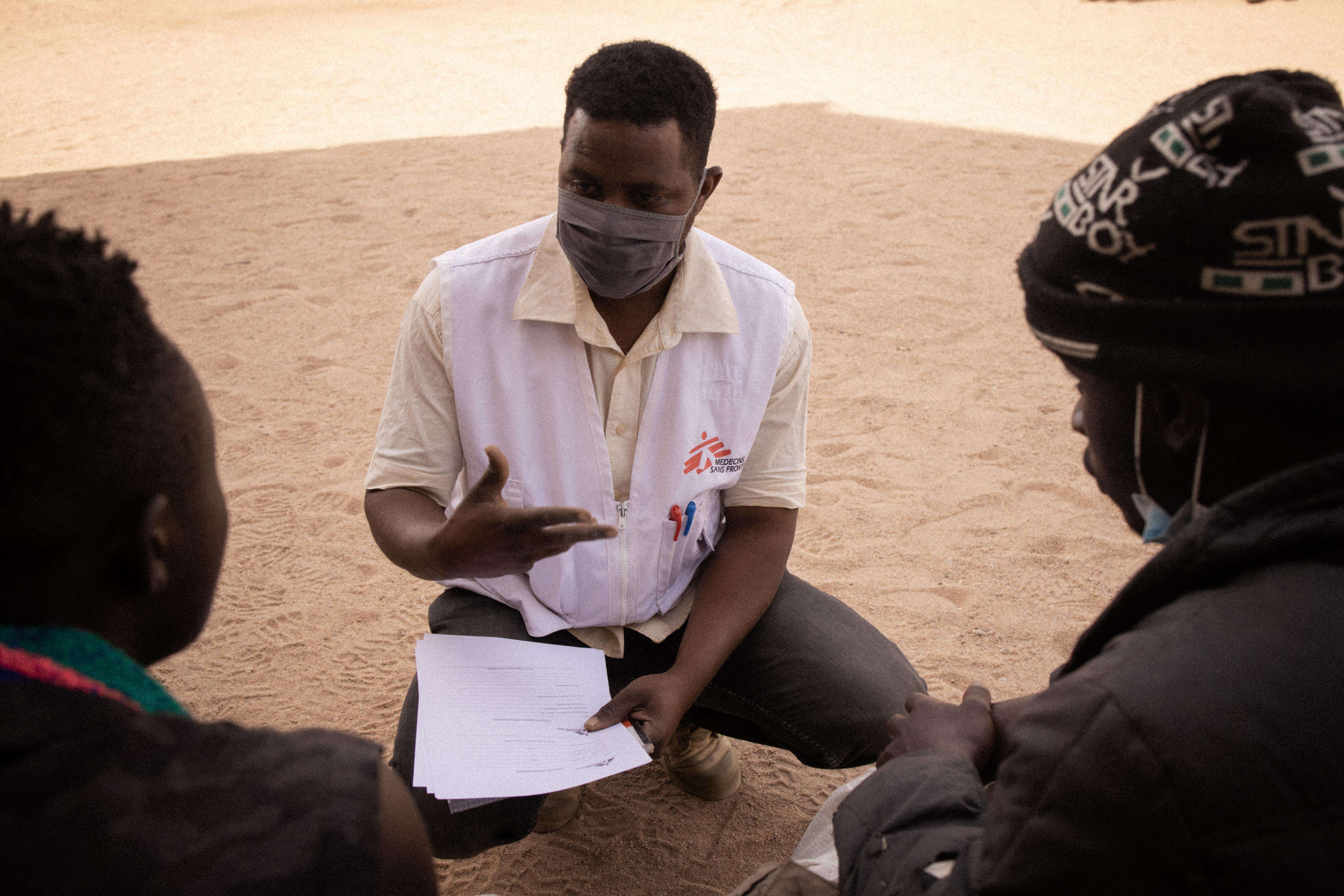At least 14,000 migrants, including minors, were expelled from Algeria to Niger between January and May 2022, according to the international medical humanitarian organization Doctors Without Borders/Médecins Sans Frontières (MSF). MSF condemns the inhumane treatment of migrants and calls on regional authorities and their partners to urgently find humane, appropriate, and sustainable solutions for migrants who are pushed back from Algeria and Libya and stranded in the Sahel desert.
Approximately two thousand migrants are expelled every month, including people with severe injuries, people who have been raped or assaulted, and people suffering from serious trauma. They are usually arrested in Libya or Algeria and kept in detention centers for days, weeks, or months before being packed into buses or trucks—often in the middle of the night—and dropped at a location in the Sahel desert on the border of Algeria and Niger known as “Point Zero.” From here, they must walk approximately nine miles to reach the village of Assamaka in the Agadez region of Niger. Some people get lost on the way—38 bodies were found between 2020 and 2021. Others are never found.
Nearly 70 percent of the migrants who received medical assistance from MSF said that they were subjected to violence and degrading treatment by Algerian and Libyan guards.
"The seriousness of the abuses committed against migrants is beyond dispute,” said Jamal Mrrouch, MSF's head of mission in Niger. The testimonies of our patients and their physical and mental condition when they arrive in our health structures prove that these people have gone through hell during their expulsion from Algerian and Libyan territory."
In 2021, 27,208 migrants trying to reach Europe via the Mediterranean Sea were expelled from Algeria to Niger. As the European Union (EU) expands its attempts to curb migration, migrants are forced to take increasingly dangerous routes to avoid being caught, detained, and expelled. This only creates more opportunities for smugglers to exploit migrants.
Because of their legal status, access to basic services, including health care, is very complicated for migrants. Since 2018, MSF teams have organized regular search and rescue operations to help those who are lost or abandoned in the desert. MSF supports several integrated health centers and mobile clinics in the Agadez region and provides free health care, psychosocial support, referrals for complicated cases, and emergency evacuations for urgent treatment. In 2021, MSF provided more than 47,000 medical consultations, including 34,276 mental health consultations.
"Our aim is not only to raise the alarm about the situation these migrants face,” said Mrrouch. “As a humanitarian actor and witness to the terrible suffering of thousands in the Sahel, it is our duty to denounce this humanitarian tragedy. It is also our duty to call on the authorities concerned, the EU, and humanitarian partners to take immediate measures to respect human dignity in border control [efforts]. We cannot continue to simply ignore this situation thinking that the problem will solve itself.”




